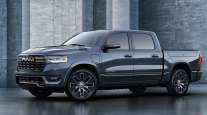San Francisco Chronicle
California Cuts Electric Car Rebates, Drops Luxury Models

[Stay on top of transportation news: Get TTNews in your inbox.]
California’s rebate program to coax more drivers to buy electric vehicles just got less generous, especially for those looking to spend on a luxury model.
Effective Dec. 3, state regulators have stopped offering rebates for buyers of electric cars or plug-in hybrid vehicles that cost more than $60,000 — a move that will make buyers of high-end Tesla models dig deeper into their pockets.
The California Air Resources Board, the agency that regulates the program, has also reduced the standard rebate by $500 per vehicle, from $2,500 to $2,000 for all-electric cars, and eliminated rebates for plug-in hybrid cars with an electric-battery range of less than 35 miles.

Agency officials said the changes will ensure that more people will receive rebates, particularly those with low incomes. Currently, funding for the program runs out every fiscal year, forcing many buyers to join a waiting list that can extend for months.
But some advocates for clean cars have criticized the move, saying reducing rebates could deter buyers at a crucial time, as electric car sales surge following years of sluggish growth. Electric cars are typically more expensive than comparable gas-powered models, and the state rebates, combined with a federal tax break, can slice thousands of dollars off the sticker price.
Melanie Turner, a spokeswoman for CARB, said the new rules put an emphasis on rebates for disadvantaged communities, including areas with higher pollution and lower incomes.
Under the rules, low-income buyers will still be eligible for higher rebates, which are unchanged: $4,500 for all-electric cars and $3,500 for hybrids that run on a combination of gas and plug-in battery.
“California simply cannot meet its clean air or climate goals without transforming and cleaning up all our cars and trucks with an emphasis on putting ultra-clean vehicles in communities that need them the most, which are those most impacted by pollution,” Turner said in an email.
California leads the nation in electric-car sales, and the state has issued rebates to 354,064 car buyers since its program began in 2011. About 5% of rebates have been earmarked for low- and moderate-income people, currently defined as those earning less than $50,730 for a household of two.
Assemblyman Phil Ting (D-San Francisco), a vocal advocate for electric cars in the Legislature, criticized the changes. He said the new rules create confusion for buyers.

Ting
“The rebate program could be killed by death by 1,000 bureaucratic memos,” Ting said.
Ting sponsored a bill this year that could have tripled rebates, but it died in committee. He said the state should ramp up incentives and decrease them over time with a specific end date, so people have incentive to buy now.
CARB plans to spend $238 million on rebates this year. But the program has no specified end date, and recent changes to rebate amounts and eligibility rules were announced with a month’s notice.
“If you don’t tell people when the deadline is, they’re not going to know,” Ting said of the state’s approach. “It would be like having a Black Friday sale and nobody knows when it is.”
CARB’s changes also exclude repeat electric-car buyers. Under the old rules, people could receive two rebates in a lifetime. Now, buyers are eligible for only one.
However, the changes do not apply retroactively. Anyone who bought an electric car or plug-in hybrid before Dec. 3 that doesn’t meet the new eligibility rules has until March 2 to submit an application.
Going forward, buyers will be required to apply for their rebates within three months of purchasing a car.

Levin
Joel Levin, executive director of Plug In America, an advocacy group for electric-car drivers, said some of the changes are discouraging, including smaller rebates and a more complicated maze of regulations.
But he said the changes are positive in the sense that they will stop funding from running out halfway through the year and give low-income people more priority.
“It’s a myth that they’re only expensive cars for rich people,” Levin said of electric cars. “The truth is they’re fundamentally better cars — we just need to get pricing to the right point for people.”
Want more news? Listen to today's daily briefing:




